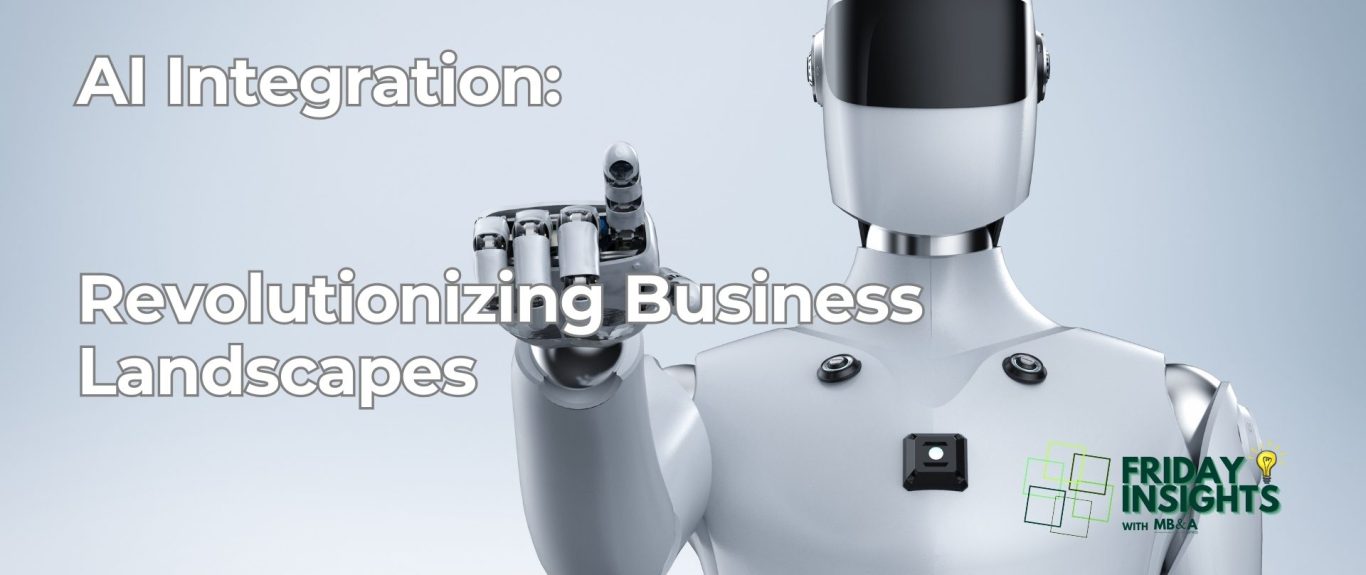AI Integration: Revolutionizing Business Landscapes

Artificial Intelligence, now no longer a concept of the future, is a potent tool that is restructuring industries across the world. Businesses embracing AI integration are opening themselves to unparalleled opportunities for growth, efficiency, and innovation.

Key Benefits of AI Integration:
- Better Decision Making: AI algorithms can analyze large datasets to identify patterns and trends that might elude human analysts. This enables the business to make data-driven decisions with a lot more confidence.
- Improved Customer Experience: Artificial Intelligence-driven chatbots or virtual assistants provide customer support 24x7, while personalized recommendations increase customer satisfaction through targeted marketing campaigns.
- Improved Operational Efficiency: The automation of basic tasks frees up the human element for more strategic undertakings. AI can thus refine processes, reduce errors, and enhance workflows.
- Innovation and Product Development: This AI-driven research and development speed up the pace of innovation that can provide unparalleled breakthroughs in new products or services.

Join the MB&A CPAs Community:
Stay connected with MB&A CPAs on social media through linkedin, facebook, instagram, twitter, tiktok, and youtube for the latest updates on industry trends, financial insights, and upcoming events.
Together, we can build a brighter future with accurate and insightful information.


The Future of AI in Business
As AI technology continues to advance, its impact on businesses will only grow. By embracing AI, organizations can gain a competitive edge, drive innovation, and achieve sustainable growth. The future of business is intertwined with the future of AI.
Common Business Applications of AI:
- Customer Service: AI-driven chatbots and virtual assistants manage customer queries, support, and problems with efficiency.
- Marketing and Sales: AI examines customer data for trend identification, personalization of marketing campaigns, and sales strategy optimization.
- Human Resources: AI can make the processes of recruitment, induction, and performance management smooth.
- Finance: AI algorithms can detect fraud, automate financial reporting, and optimize investment strategies.
- Supply Chain Management: AI optimizes inventory, predicts demand, and improves supply chain visibility.
Successfully Implementing AI
- Identify Clear Goals: Define specific business objectives that AI can help achieve.
- Data Preparation: Ensure high-quality, clean, and accessible data to train AI models.
- Choose the Right AI Tools: Select AI solutions that align with your business needs and technical capabilities.
- Build a Skilled Team: Invest in AI talent or partner with AI experts to drive successful implementation.
- Start Small and Scale: Begin with a pilot project to test the waters and gradually expand AI initiatives.
Related Contents
© Copyright. All rights reserved.
We need your consent to load the translations
We use a third-party service to translate the website content that may collect data about your activity. Please review the details in the privacy policy and accept the service to view the translations.





























































